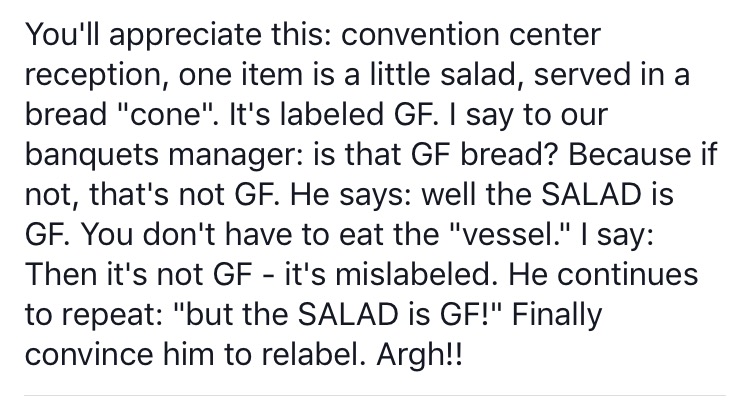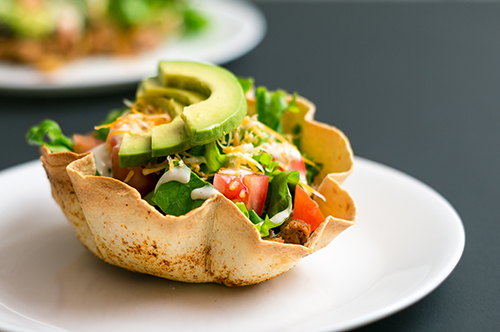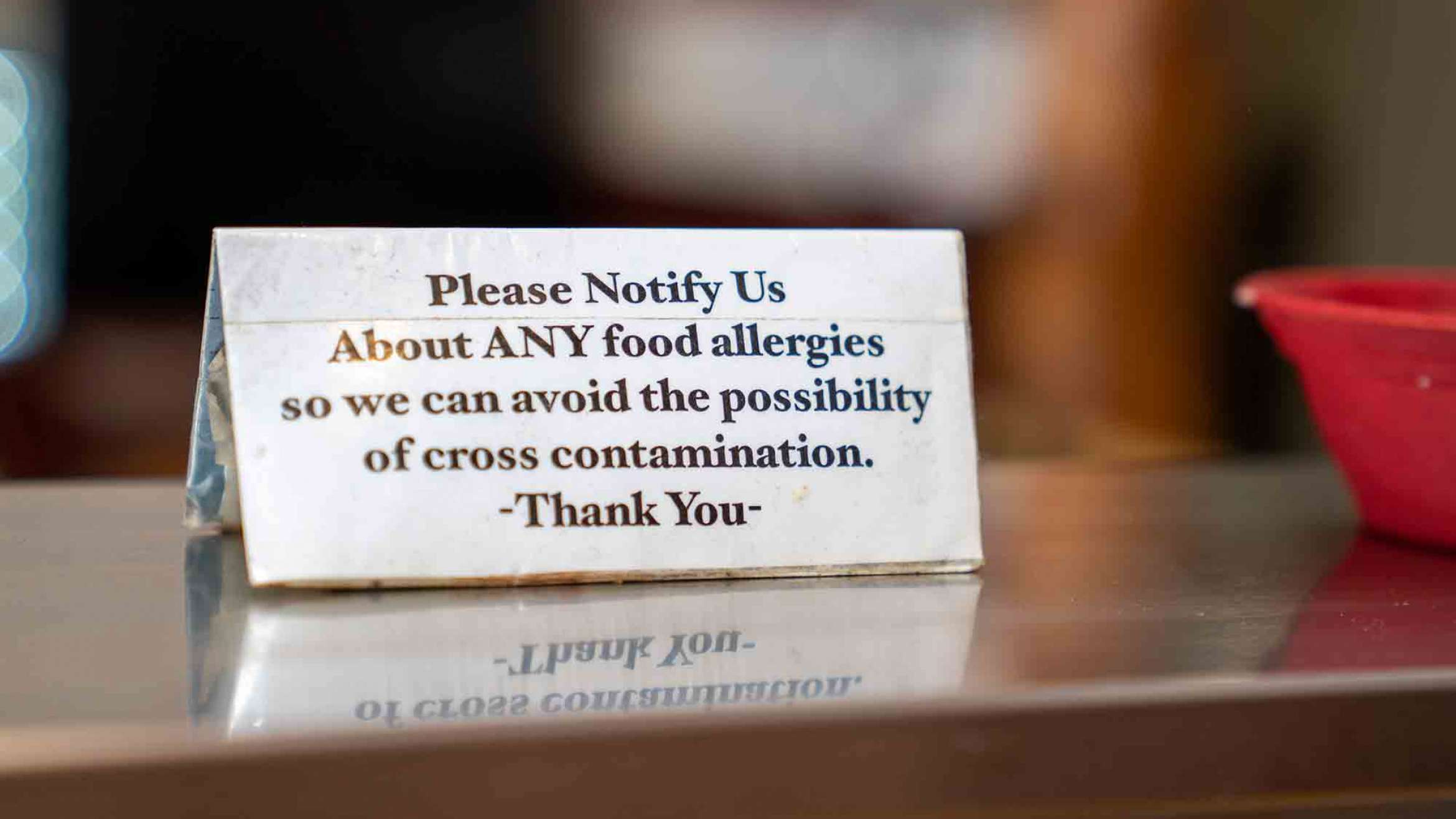But, The Salad is Gluten-Free!
Last week a meeting planner (MP) posted a message (below) on my Facebook feed frustrated with the response the director of catering at a large convention center (DC) was providing when she asked if the serving vessel the salad was in was actually gluten-free. The conversation went something like this:
MP: I notice that the salad is labeled gluten-free. Is that cone (vessel) the salad is being served in gluten-free as well? If it is not, then the salad is not gluten-free and the label should be corrected.
DC: The salad is gluten-free. You do not have to eat the vessel.
MP: But, the salad is in the vessel, making the salad not gluten-free. Please correct the label.
DC: But the SALAD is gluten-fee.

The director of catering had clearly not been trained to understand cross-contamination or cross-contact and food allergens. How did the meeting planner know? The next morning the director of catering was telling another meeting planner that he went home and googled it and now he understands what the meeting planner was saying.
Adding fuel to the meeting planner’s frustration was the fact that the salad also had crunchy Asian noodles on top and not one staff member could confirm whether the noodles were gluten-free. Some of the banquet staff said they were, some said they didn’t know. The chef was finally asked. He checked and verified that they were in fact NOT gluten-free.
So, the hotel sold the planner a gluten-free salad that was not gluten-free. It had crunchy flour noodles on top and was served in a wheat-based cone. A few issues come to mind for me about this situation:
First, the director of catering arguing with the client onsite and not listening to her concerns is not an appropriate way to handle food safety. Why didn’t he acknowledge her question and then confirm with the chef? (This is what really irked the meeting planner.) If someone does not know how to coordinate and communicate (e.g., listening) and doesn’t know what is being served, how confident can you be about the servers and the rest of the culinary team understand how to communicate with guests when the similar questions come up?
Second, everyone, including the director of catering, the chef, and the meeting planner missed the “bread cone” and the “crunchy chow main” listed in the menu on the Banquet Event Order (BEO). Why did the convention center sell a salad as gluten-free when the salad actually had gluten in it? What staff person created the BEO? Who created the menu and sold it as gluten-free? Who is responsible for ensuring the accuracy of labeling? Division of labor needs to be clear and a consultant needs to be brought in if the team doesn’t have an understanding of attendees needs and food safety. Also, food allergy and dietary needs should fall under the category of mandatory training.

Third, for a safer food environment, the menu items should be listed with the allergens they CONTAIN not what they are free of. Yes, it is fine to say it is gluten-free, nut-free, dairy-free, as long as you also list the allergens that are IN the food. It is more transparent and clear and follows the FDA guidelines for pre-packaged foods under the Food Allergen Labeling and Consumer Protection Act of 2004.
MENU ITEM
Asian Cabbage Salad: Napa cabbage/ Mixed green/ Edamame/ Shredded Carrots/ Cherry Tomatoes/ Crunchy Chow Main/ Toasted Sesame Dressing
ALLERGENS
Contains soy, gluten, sesame
Dairy-free, vegetarian
Superfood Salad: Tossed Wild Greens/ Shredded Carrots/ Craisins/ Grapes/ Quinoa/ Tofu/ Roasted Orange Honey Vinaigrette[
Contains soy
Gluten-friendly, dairy-free, Vegetarian
This is not the first time this same type of conversation has happened about salad and other menu items and it most likely won’t be the last, but there is a solution. Training. Specifically, food allergen training for ALL staff who come into contact with food that is being served to customers (and employees) as well as staff who have direct contact with clients and customers: executive chefs, line cooks, sous chefs, directors of catering, sales managers, banquet captains, servers, beverage managers, bartenders, stewards and more. And, it should come with a commitment from all levels of management.
What Should be Taught and Understood?
- Food allergies, celiac disease, religious practices and lifestyle dietary needs are serious.
- Treating guests with dietary needs with respect is imperative.
- All employees have a responsibility to create a safe and inclusive food environment for their guests.
- Front of house food handling practices are just as important as those in the back of the house.
- Common terms for food allergens and their aliases and the foods they are found in.
- What is being served that day and that meal and know the allergens found in each and every dish.
- Standard operating procedures for the specific venue, including communication methods between the front and back of the house, how to prevent cross-contact, individual staff responsibilities, allergy-friendly equipment and ingredients to use for food-allergic diners.
Regular and continuously updated training on dietary needs—food allergens, medical conditions, lifestyle preferences and religious practices—whether created internally or by an outside training company, is vital in creating a safer, more comfortable and inclusive environment for guests and employees alike.
Don’t let the salad saga and untrained staff like those working in the convention center noted above impact customer experience and safety or your profits.
Increase loyalty, boost your bottom line and improve safety with thrive! training services.



